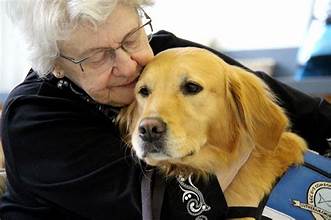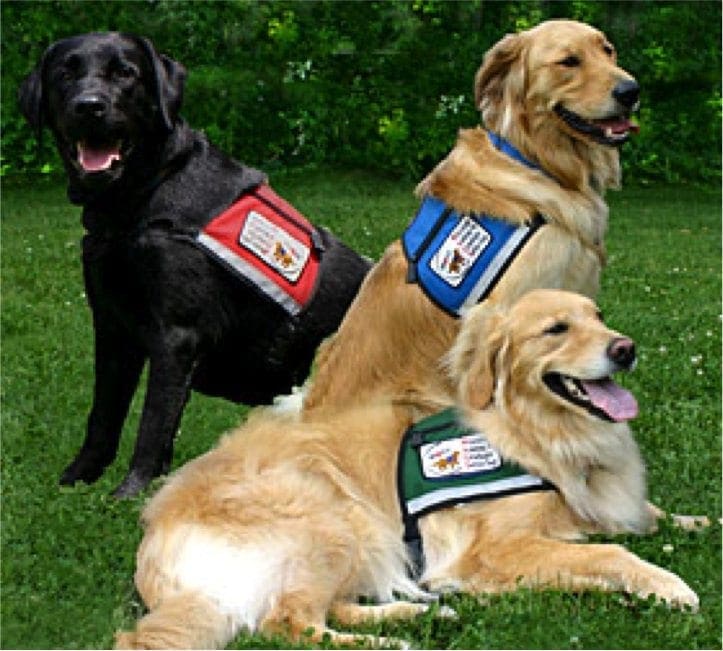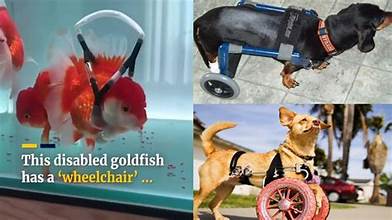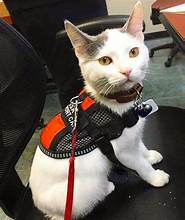🏡 Why Support Dogs Matter
Support dogs provide more than companionship—they offer emotional, physical, and psychological benefits tailored to the specific needs of their human partners. But with terms like comfort dog, therapy dog, and service dog often used interchangeably, it’s essential to understand what sets them apart.
Whether you’re seeking emotional healing, physical assistance, or a calming presence for a loved one, choosing the right type of dog is essential.
🐾 Comfort Dogs (Emotional Support Animals)
❤️ What They Do:
Comfort dogs, also known as Emotional Support Animals (ESAs), provide emotional comfort and companionship. They are not trained to perform specific tasks, but their presence can reduce symptoms of anxiety, depression, PTSD, and other mental health conditions.

🧠 Training & Certification:
- No specialized task training required
- A licensed mental health professional must write an ESA letter to qualify.
- Not granted public access rights (cannot go into stores or restaurants)
👨👩👧 Ideal For:
- Children or adults with anxiety, depression, or sensory disorders
- Families in need of emotional reassurance at home
- Seniors seeking comfort and companionship
Common Breeds:
Cavalier King Charles Spaniel, Pomeranian, Bichon Frise, and mixed breeds with calm dispositions.
🐕 Therapy Dogs
🏥 What They Do:
Therapy dogs are trained to provide comfort and affection to people in hospitals, schools, nursing homes, and disaster areas. They are not attached to one person but visit multiple individuals who benefit from their presence.

🧠 Training & Certification:
- Basic obedience and good behavior are required
- Must pass temperament evaluations
- Certified by therapy dog organizations (e.g., Pet Partners, Alliance of Therapy Dogs)
🧒 Ideal For:
- Schools or hospitals wanting visits from trained comfort animals
- Children with special needs benefit from calm, structured interaction.
- Families involved in community volunteer work
Common Breeds:
Golden Retriever, Labrador Retriever, Poodle, and other social, gentle breeds.
🦮 Service Dogs
🛠️ What They Do:
Service dogs are highly trained to perform specific tasks that directly assist a person with a disability. This may include guiding the visually impaired, detecting seizures, retrieving medication, or alerting to changes in blood sugar levels.

🧠 Training & Certification:
- Extensive task-based training (often over 1–2 years)
- Must remain focused and undistracted in public
- Protected by the Americans with Disabilities Act (ADA) and granted full public access rights
💪 Ideal For:
- Individuals with physical, sensory, psychiatric, or neurological disabilities
- Families with a child who needs consistent, task-driven assistance
- Those needing a service dog for medical alerts or mobility aid
Common Breeds:
Labrador Retriever, Golden Retriever, Standard Poodle, and German Shepherd.
🛠️ Quick Comparison Table
| Feature | Comfort Dog (ESA) | Therapy Dog | Service Dog |
| Purpose | Emotional support | Comfort for others | Task-based assistance |
| Training Needed | Basic obedience | Certified therapy training | Extensive task-specific training |
| Public Access | ❌ No (except housing/airlines) | ✅ In authorized institutions | ✅ Full legal access |
| Ideal For | Anxiety, depression, PTSD | Schools, hospitals, therapy programs | Disabilities needing active aid |
| Legal Protection | Fair Housing Act (FHA) | None (optional insurance) | ADA & FHA protected |
🐕🦺 How to Choose the Right Support Dog
Ask yourself:
What is the primary need—emotional comfort, medical alert, mobility help, or social connection?
Will the dog serve one person or interact with others in different settings?
Do you have the ability, time, and resources for training and certification?
Are you looking for a pet for your home or a working dog for therapeutic or medical support?
👪 Real-Life Scenarios
- A child with sensory processing disorder may benefit most from a comfort dog who offers steady companionship and grounding.
- A senior citizen recovering from surgery may enjoy the company of a therapy dog during hospital visits.
- A diabetic adult living alone may need a service dog trained to alert them to low blood sugar.
🛒 Recommended Products for Support Dogs at Home
- Thundershirt Calming Wrap – For anxiety in comfort and therapy dogs
- Paw5 Snuffle Mat – Great for mental stimulation
- Kurgo Dog Harness – Ideal for mobility support or service training
- KONG Classic Toy – Durable and perfect for stress relief
PetSafe Treat & Train – Supports training for all dog types.




